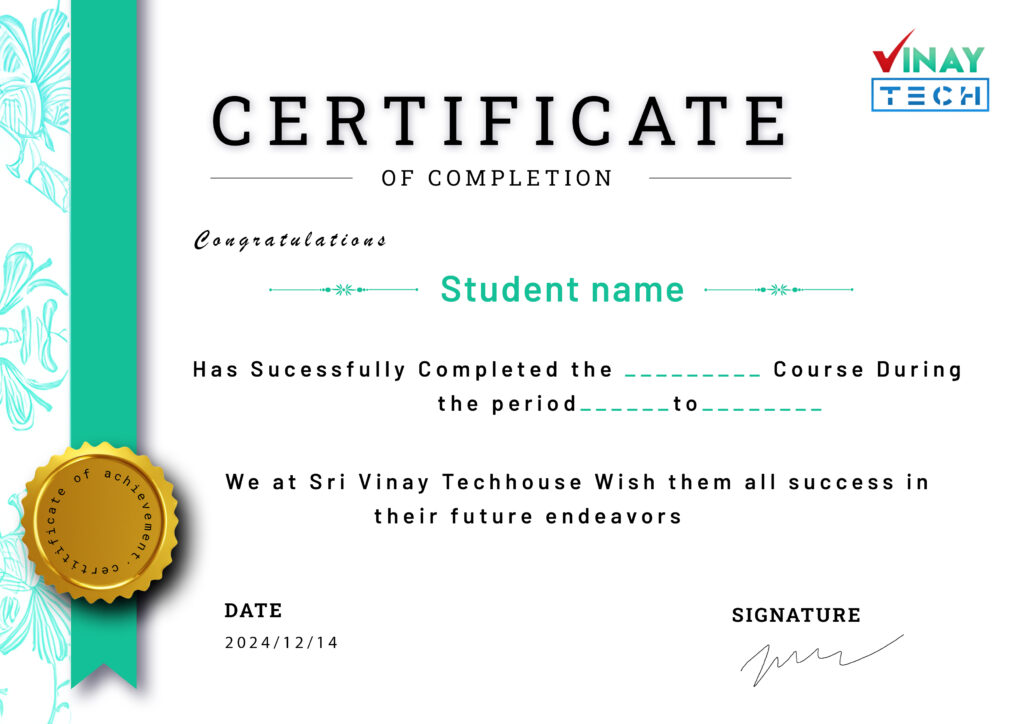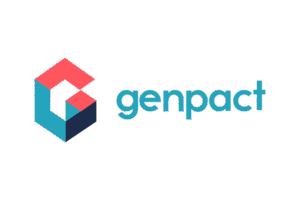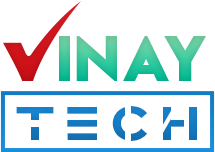Azure Data Factory Training in Hyderabad [ADF]
Learn ADF with Real-Time Projects and Expert Guidance
Join the Best Azure Data Factory (ADF) Training in Hyderabad at Vinay Tech, where you’ll gain hands-on experience building scalable ETL pipelines, integrating data from diverse sources, and automating data workflows in the cloud. Learn from certified trainers with practical, industry-focused sessions.
Over 300+ reviews

Get a Free Demo
What Is Azure Data Factory?
Azure Data Factory is a cloud-based data integration service by Microsoft that allows you to create, schedule, and manage data pipelines at scale. It enables the movement and transformation of data from various sources—both on-premises and cloud-based—into centralized data stores such as Azure SQL Database.
With Azure Data Factory, you can automate complex data workflows, orchestrate data processing tasks, and build scalable ETL (Extract, Transform, Load) and ELT (Extract, Load, Transform) solutions. It’s ideal for creating and managing repeatable and reliable data pipelines for analytics, reporting, or machine learning applications.
Students can Expect
When you join our Azure Data Factory Training in Hyderabad, you can expect:
Azure BI (ADF) Training Objectives
By the end of the Azure BI (ADF) Training at Vinay Tech, learners will be able to:
Understand the core architecture and components of Azure Data Factory within the Azure BI ecosystem.
Build and manage ETL pipelines to move and transform data across various sources.
Configure and use linked services, datasets, pipelines, parameters, triggers, and variables effectively.
Design and implement Mapping Data Flows for data cleansing, transformation, and loading.
Integrate Azure Data Factory with Azure SQL Database, Blob Storage, and Data Lake for seamless data processing.
Monitor, debug, and optimize data workflows using ADF monitoring tools.
Automate data movements and workflows using control flows and event-based triggers.
Work with Self-hosted and Azure Integration Runtimes for hybrid data movement.
Implement real-time data solutions within an Azure BI architecture (ADF + Power BI + Azure Storage).
Gain hands-on experience through real-time projects aligned with industry use cases.
Advantages Of Azure Data Factory Training in Hyderabad
- Azure Data Factory provides an easy way to monitor and manage your data pipelines.
- In addition to SQL, Azure Data Factory supports a variety of Azure services and integrations.
- The service is compatible with many popular databases, including Azure SQL and CosmosDB.
- The service can be used to connect and manage data sources on the cloud and on premises.
- Azure Data Factory supports both batch and streaming data processes.
- It also has built-in support for SSIS, an ETL tool.
Benefits Of Learn Azure Data Factory
- It Is Easy To Learn Even If You’re a Fresher.
- You Get The Job In The Software Industry In Less Than 90 Days.
- No Coding Language Required To Learn.
- You Get Decent Package
- Good Career Choice Why Because It’s Cloud Technology
Why Azure Data Factory With Vinay Tech House?
A comprehensive training resource that includes real-time training scenarios for every area of study using the Azure Data Factory training solutions.
- We also provide case studies to support Azure Data Factory training.
- We plan sessions according to your preferences, delivered by highly skilled and trained experts in real-time.
- We record each session for future reference and easy access.
- We offer ongoing, quick, and weekend-long courses for Azure Data Factory online training.
- Additionally, we offer lucrative and flexible payment plans that are both profitable and convenient.
Azure Data Factory (ADF) – Data Integration Course
Learn how to design, run, and monitor data pipelines with Azure Data Factory.
Pipeline Insights
Track succeeded vs. failed pipeline runs effortlessly.
Failure Breakdown
Visualize and analyze pipeline issues for quick troubleshooting.
Activity Success Rate
See a pie chart of activity successes vs. failures at a glance.
Data Preview
View real-time samples of data as it transforms through the pipeline.
ETL Flow
Clear diagram showing the flow: Ingest → Transform → Load

Azure Data Factory Training in Hyderabad
Graduates
Learning Azure Data Factory is a great way to build real-world skills in cloud data integration—something employers actually look for.
Working Professionals
Adding Azure BI tools like ADF to your skillset can open doors to new roles in data engineering or cloud-based analytics. It’s a smart move if you’re aiming for career growth.
Career Change
Azure Data Factory is a great place to start. It’s practical, in demand, and gives you hands-on experience with real data workflows—no deep coding needed.
Available Modes
For only Recorded Sessions / Corporate Training, Contact us at +91 9859 831 831
Azure BI Course Features
Learn Azure BI (ADF) in Hyderabad – From Basics to Advanced

Expert Trainers
Get trained by certified professionals with real industry experience in Azure data services.

Comprehensive Curriculum
Covers ADF essentials—pipelines, triggers, data flows, and integration with Synapse and Data Lake.

Hands-On Real-Time Projects
Work on practical projects with real datasets to gain hands-on experience.

Placement Assistance
Get help with resume building, interview preparation, and job placement support.

Certification
Earn a course completion certificate and prep for Microsoft certification exams.

Lifetime Support
Access learning materials and get support even after course completion.
CURRICULUM
- Free Account
- Student Account
- Pay As You Go
- Creation of Accounts
- How to Create Resources Groups in Microsoft Azure
- Azure Resource Manager vs. classic deployment
- Azure to Manager or Delete Resource Group and Resource
- Azure Subscription Maintenance
- Planning and Managing Cost
- Azure Support Option
- Azure Service Level Agreement
- Azure Cost Analysis and Restriction
- Azure Cost billing Report
A. Blob
B. File Shares
C. Tables
D. Ques
- Storage Service & Account
- Creating a Storage Account
- Standard & Premium Performance
- Understanding Replication
- Hot, Cold & Archive Access Tiers
- Working with Containers & Blobs, Append Blobs, Page Blobs
- Blob Metadata
- Soft Delete
- Azure Storage Explorer
- Access Blob Securely
- Access Key
- Account Shared Access Token
- Service Shared Access Token
- Shared Access Policy
- Storage Service Encryption
- Azure Key Vault
- Azure SQL Topics
- Azure SQL Server
- Azure SQL Data Base
- Azure SQL Managed Instance
- Azure SQL In Virtual Machine
- Introduction to Azure SQL Database
- Comparing Single Database
- Mange Instance
- Creating and Using SQL Server
- Azure SQL Database Tools
- Migrating on premise Database to SQL Azure
- Purchasing Models
- DTU Service Tiers
- vCore Based Model
- Serverless Computer Tier
- Service Tiers
-General Purpose / Standard
-Business Critical / Premium
-Hyperscale
- Deployment of an Azure SQL Database
- Elastic Pools
- What is SQL Elastic Pools
Choosing the Correct Pool Size
- Creating a New Pool
- Manage Pools
- Monitoring and Tuning Azure SQL Database
- Configure SQL Database Auditing
- Export and Import of Database
- Automated backup
- Point in Time Restore
- Restore Deleted Database
- Long-Term Backup retention
- Active Geo Replication
- Auto Failover Group
- Azure Data Lake Store
-Azure Data Lake Gen 1
-Azure Data Lake Gen 2
- Azure Data Lake Analytics
- Introduction to Azure Data lake
- What is Data lake
- What is Azure Data lake
- Data Lake Architecture?
- Working With Azure Data Lake
- Provisioning Azure Data Lake
- Explore Data Lake Analytics
- Explore Data Lake Store
- Uploading Sample File
- Using Azure Portal
- Using Storage Explorer
- Using Azure CLI
- Creation of Azure Data Lake Analytics Using Data Lake Gen 1
- U-SQL Code Job Submitting
- Working With Sample Data and Scripts
- Use of Analytics Units (AU’S)
- Heat Map
- Job Graph
- Running USQL Analytics Query from Azure Data Factory
- Automation USQL Script Using Trigger in ADF.
- Creating the Synapse DWH DB
- Dedicated SQL pools (formerly SQL DW)
- Managing and Loading the Data in DWH Objects
- Loading the data in DWH using ADF from different source.
- Creating Master Key
- Creating Scoped Credential
- Creating External Data Source
- Creating External File Format
- Creating External Table
- Creating an Analysis Project Using Visual Studio
- Workspace Database, Server, Direct Query, Backup to Disk
- Installation Steps, Error Mechanisms
- Creating a Tabular model and Setting
- Data to the Model
- Renaming tables
- filtering Columns
- Rename Columns
- Monitoring relationships
- Providing relationships
- Create Hierarchies
- Create Partitions
- Create Perspectives
- Create Roles
- Create KPIs
- Deployment
- How to Create Virtual Machine
- Managing Directories
- Accessing the RDP from On-premises
- Direct Connecting to Remote Desktop through Public IP
- Different Operating System Configuration.
- Managing and Reset the VM password
- Introduction about SSIS tool
- Installation Visual Studio SSDT different Version for SSIS ETL
- Creating New project and Modifying the exciting SSIS ETL project
- Creating different types of packages
- Control Flow Task and its different type of components and transformation
- Different Source and Destination for data loading
- Full Load development Using SSIS package
- Incremental process Using Lookup Transformation, SCD and CDC Components
- Automation or Scheduling the exiting SSIS ETL packages for daily load
- SSIS package Deployment model Using Ispac file and Manifestfiles
- Project Deployment model, Package Deployment and File System model fo SSIS ETL Packages
- Creating jobs to schedule the exiting SSIS ETL packages and Configurations
- SSIS Package Deployment Model Using Ispac, File System and Manifestfiles
- Project Deployment model, package Deployment and File System model fo SSIS ETL packages
Azure Data Factory vs SSIS
- Linked Services
- Data Sets
- Pipelines
- Parameters
- Variables
- Copy Data
- Monitor Manage
- Autor and Deploy
- Different Kinds of integration runtimes
- How to Create pipelines from template
- How to Configure different Integration Runtimes
- Azure Integration runtime
- Azure self Hosted Integration Runtime
- SSIS Integration runtime
Move & Transform
- Copy Data
- Data Flow
General Activities
- Append Variable
- Execute Pipeline
- Execute SSIS Package
- Get Metadata
- Lookup
- Stored Procedure
- Set Variable
- Delete
- Wait
- Until
- WEB
- Precedence Constraints
- Breakpoint
- Data Flow
Iteration & Conditionals
- Filter
- For Each
- If Condition
Integration Runtime
- Azure Integration Services Runtime (Auto Resolved)
- SSIS Integration Services Runtime (Lift & Shift Operation)
- Self-Hosted Integration Runtime (Extract data from external Sources)
Data Flow Transformation
- Append Variable
- Source
- Sink
- Filter
- Select
- Conditional split
- Derived Column
- Join
- Lookup
- Union
- Aggregate
- Exists
- Surrogate key
- Pivot
- Un Pivot
- Sort
- Alter Row
Different Type of Loading Process in ADF
- Incremental Load Using SCD (Insert Update Operation) and Lookups Transformation
- Full Load Operation for Dimension and Master data
- Delta Load Process for Daily load with latest date data
- Regular or Daily Load
ADF ETL Pipeline Deployments
- What are ARM Templates and how to Export and Import?
- How to Deploy Data Factory Pipelines DEV, Test, Prod environment
- How to Create a Git Hub Account
- How to Work With Repository, Branch, Pull Request, Push Request Merge Code?
- Code Repository in Git Hub or CICD deployments
- Scheduling Automation ADF ETL Pipeline Using
Triggers & Monitor
- What is Trigger and its type?
- Normal Schedule Trigger
- Event-Based Trigger
- Tumbling Window
- Logic App to Schedule Mail Alters and ADF Pipeline
- Debugging and Monitoring Pipelines
- Error handling and Logging error records
- Lift and Shift SSIS Package into Azure Data Factory
Case Study | Practice on Azure ADF ETL
- Moving data from Blob to Blob
- Moving data from Blob to Azure SQL Server
- Moving data from SQL Server to Blob
- Moving data from ADLS to Azure SQL Server
- Moving data from ADLS to ADLS (Gen1 & Gen2)
- Configure different Types of Integration Runtimes
- Azure Integration runtime
- Azure Self Hosted Integration Runtime
- SSIS Integration runtime for Lift & Shift Operation
- Moving Data from Blob to on Premise SQL Server To Azure SQL
- Moving Data from On Premise SQL Server To Azure SQL
- Moving Data from On Premise files to Azure SQL Server
- Moving Data from On Premise files to ADLS and to Azure SQL Server
- Load data from Multiple Tables into SQL Server Using dynamic expressions & Schema
- Creation Scripts
- Load data from Multiple Files with SQL Server dynamic expressions & Schema Creation
- Script
- Implementing and auditing logs for developed package to track the detail about ADF ETL Pipelines.
- Mail Alter Configuration in ADF ETL Pipeline.
- Stored Procedure inputs and outputs parameters Configuration to load the data
- Use dynamic parameters within the pipeline
- Trigger a pipeline Using another pipeline
- Different Ways to deploy Azure resources from one resource group to another resource group
- Deploy SSIS package to ADF and Schedule
- Query Azure Data Lake Using U-SQL activity and running the same ADF Pipeline
- Loading the data into Azure DWH Synapse from multiple Sources
- Configure Databricks
- Creating the Account Using Azure and Data Brick Community Edition
- Creating and Configuring Clusters and types.
- Create Notebooks in different platform (python, Scala, R, Spark SQL
- Working with Notebook & Libraries Options
- Scheduling the Notebook.
- Working with Data Brick File System and Notebooks
- Data Movement\Loading Using Blob, DWH Synapse and Other Storages.
- Filler the Data and Modification
- Assign the Cluster based on requirement to the Notebook.
- Role\User Creation
- Working with App Registration for Access Key
- Permission
- What is Azure Event Grid Event Hub
- How to Configure Event and Hub
- Perform Realtime analytics on Event Hub Data
- Useful of Grids in Azure Data Factory for Storage Triggers
- Data Loading Process and Data Movement
- Configuring and Sending Mail Alerts Using Templets
- Scheduling the Resource or ADF Using it.
- Creating the Account
- Managing the Master and Main Brach
- Creation of Local Branch and code Merging
- Working With Merging and Pull Request
- Deployment and Code Merging
- Migration On-Premises data to Azure cloud
- Working on BACKUP and DACPACK file to move data to Azure storages
- Data Migration Using Azure Migration Assessment Tool
- What is Power BI
- What is Power BI Service
- How to Create Report in Power BI desktop Using Azure Data Sources
- Publish Reports into Power BI cloud Services
Azure Data Factory Training in Hyderabad
Advantages of Azure Data Factory Training in Hyderabad
Choosing Azure Data Factory (ADF) Training in Hyderabad at Vinay Tech offers the opportunity to master one of the most in-demand cloud data integration tools. Here’s why learning ADF is a smart move:
Easy Monitoring & Management
Azure Data Factory offers a user-friendly interface to build, monitor, and manage complex data pipelines with minimal coding.
Seamless Integration with Azure Services
ADF seamlessly integrates with multiple Azure services such as Azure SQL Database, Azure Data Lake, Azure Blob Storage, Azure Synapse Analytics, and Power BI for end-to-end analytics.
Broad Database Compatibility
It supports a wide range of data sources including Azure SQL, Cosmos DB, Oracle, MySQL, SAP, and more—both on-premises and in the cloud.
Hybrid Data Handling
ADF enables secure, scalable data movement between cloud and on-premises systems using Self-hosted Integration Runtime.
Batch & Real-Time Data Support
It supports both batch data processing and real-time data ingestion, making it ideal for a variety of business intelligence and analytics scenarios.
SSIS Integration
Azure Data Factory supports running SQL Server Integration Services (SSIS) packages natively, helping enterprises modernize legacy ETL processes in the cloud.
Why Choose Azure Data Factory Training at Vinay Tech House?
At Vinay Tech House, we are committed to delivering high-quality, real-time Azure Data Factory (ADF) training designed to help learners master cloud data integration and pipeline automation effectively.
What Makes Us Different?
Real-Time Training with Industry Scenarios
Our training includes hands-on labs and real-time project scenarios to ensure practical understanding of Azure Data Factory and related Azure BI tools.
Case Studies & MSBI Integration
We provide relevant case studies and examples that also connect concepts with MSBI (Microsoft Business Intelligence) to offer a well-rounded learning experience.
Customizable Session Timings
We schedule training sessions based on your availability—led by experienced trainers with deep real-time project exposure.
Recorded Sessions for Lifetime Access
All classes are recorded and shared with students, allowing them to revisit lessons anytime for future reference.
Flexible Weekend & Fast-Track Batches
Whether you’re a working professional or fresher, choose from weekday, weekend, or fast-track batches tailored to your pace.
Affordable & Flexible Payment Options
Our payment plans are designed to be both convenient and budget-friendly—enabling easy enrollment without financial stress.
Frequently Asked Questions
Azure Data Factory Training in Hyderabad
Basic knowledge of SQL and data concepts is helpful. Prior experience with Azure or any ETL tools is a plus, but not mandatory.
Yes. The course is designed for both beginners and working professionals. We start from the basics and gradually move to advanced concepts.
Absolutely. We focus on real-time projects and practical sessions so you can build pipelines and workflows in a live Azure environment.
Yes. We offer resume building, mock interviews, and job referral support to help you land your first or next job in the Azure ecosystem.
Azure Data Factory (ADF) boasts a range of features that make it a powerful tool for data integration and management. Including: Data Source Connectivity, Visual Pipeline Design, Scheduling and Automation, Monitoring and Management and Scalability and Flexibility.
Mastering data is the key to success in today’s India! Azure Data Factory (ADF) training equips you with the skills to seamlessly move and transform data between different sources. This in-demand skill is perfect for anyone looking to boost their career in data analysis, business intelligence, or software development. No prior coding experience needed! Become an expert in data integration and unlock exciting opportunities in the booming Indian data market.
Get certified by VinayTech House
Upon successful completion of the course, you will receive a Vinay Tech Course Completion Certificate. This certification enhances your resume and can significantly boost your chances of securing top job roles in leading multinational companies (MNCs). The certificate is available both as a digital copy and a printable hard copy, providing flexibility based on your needs.

Our Learners Work At









Related Courses



